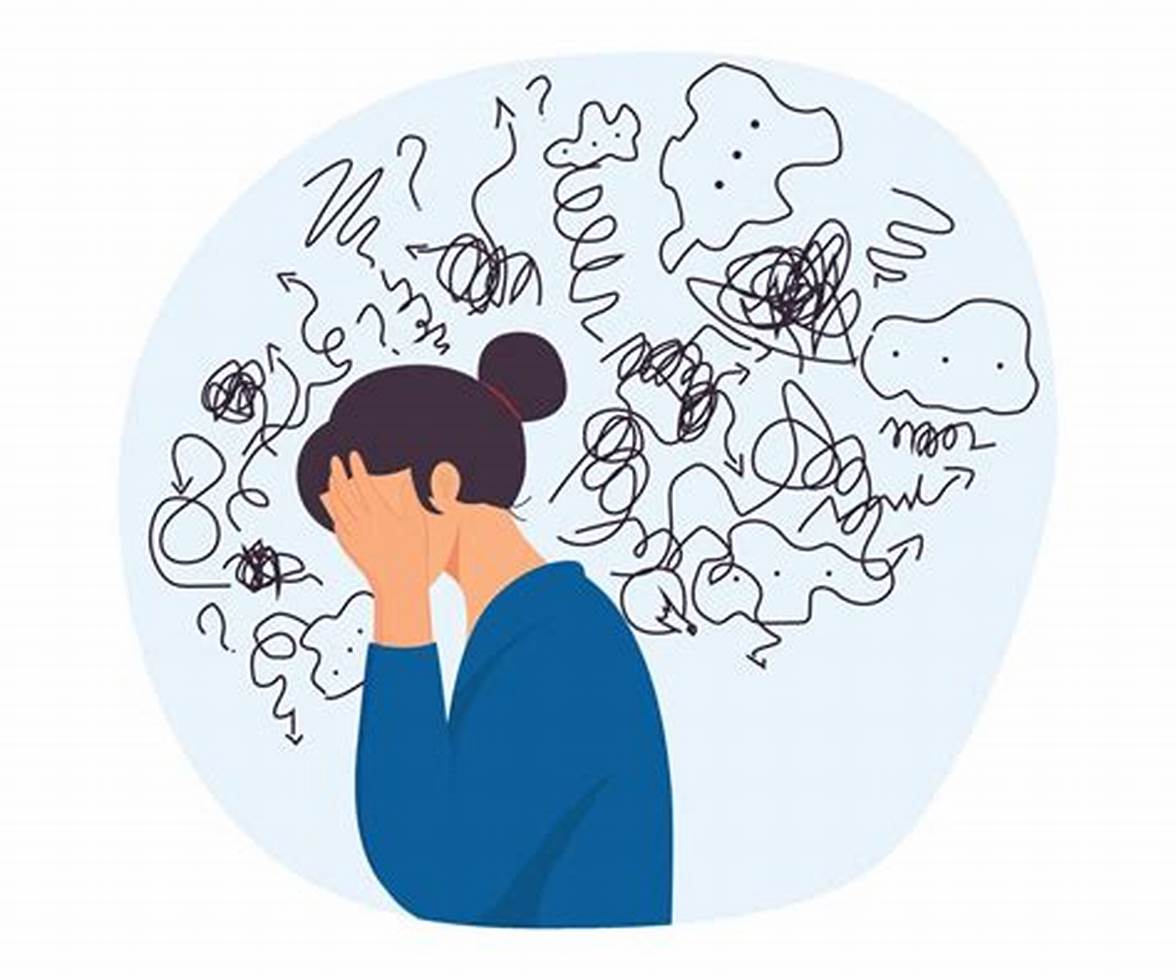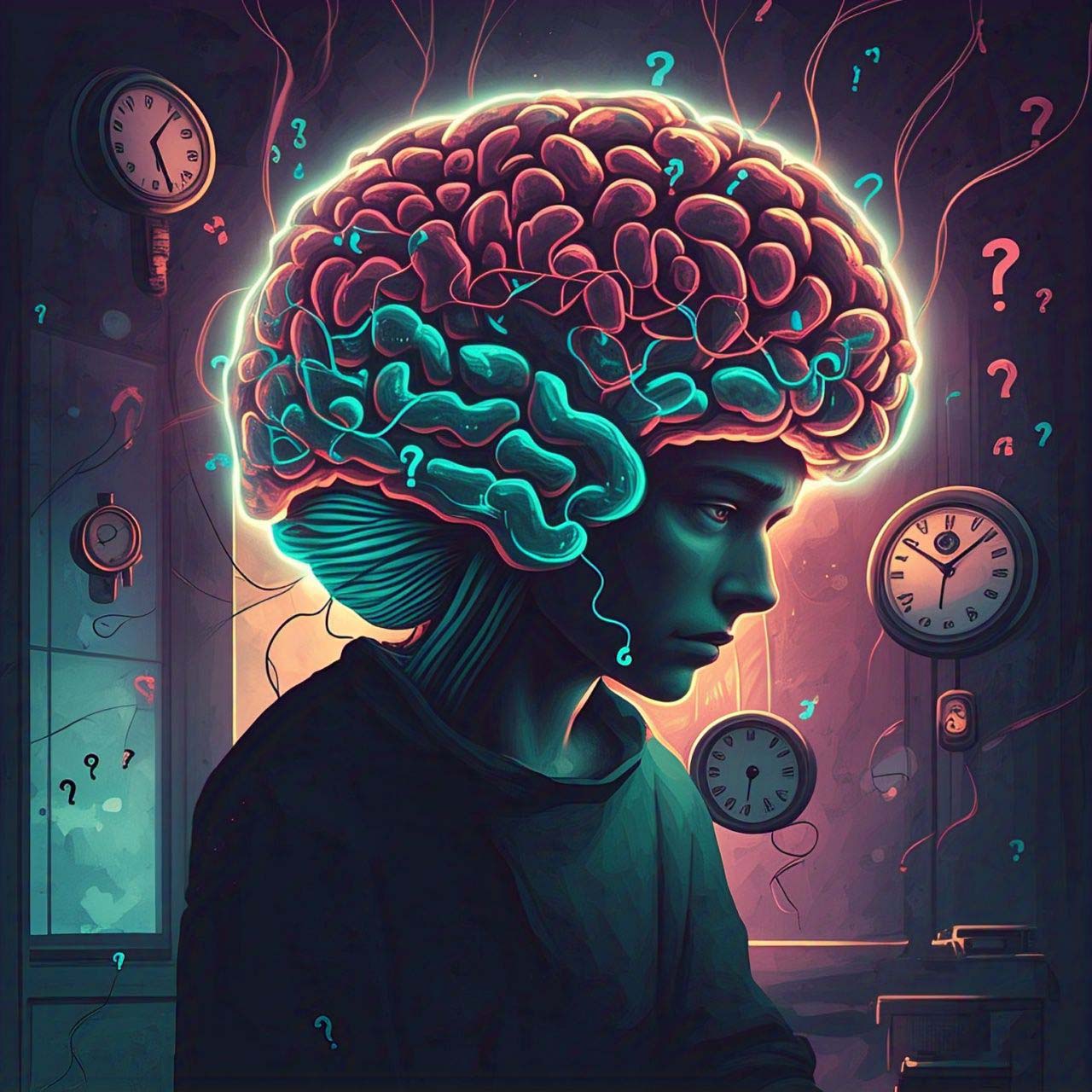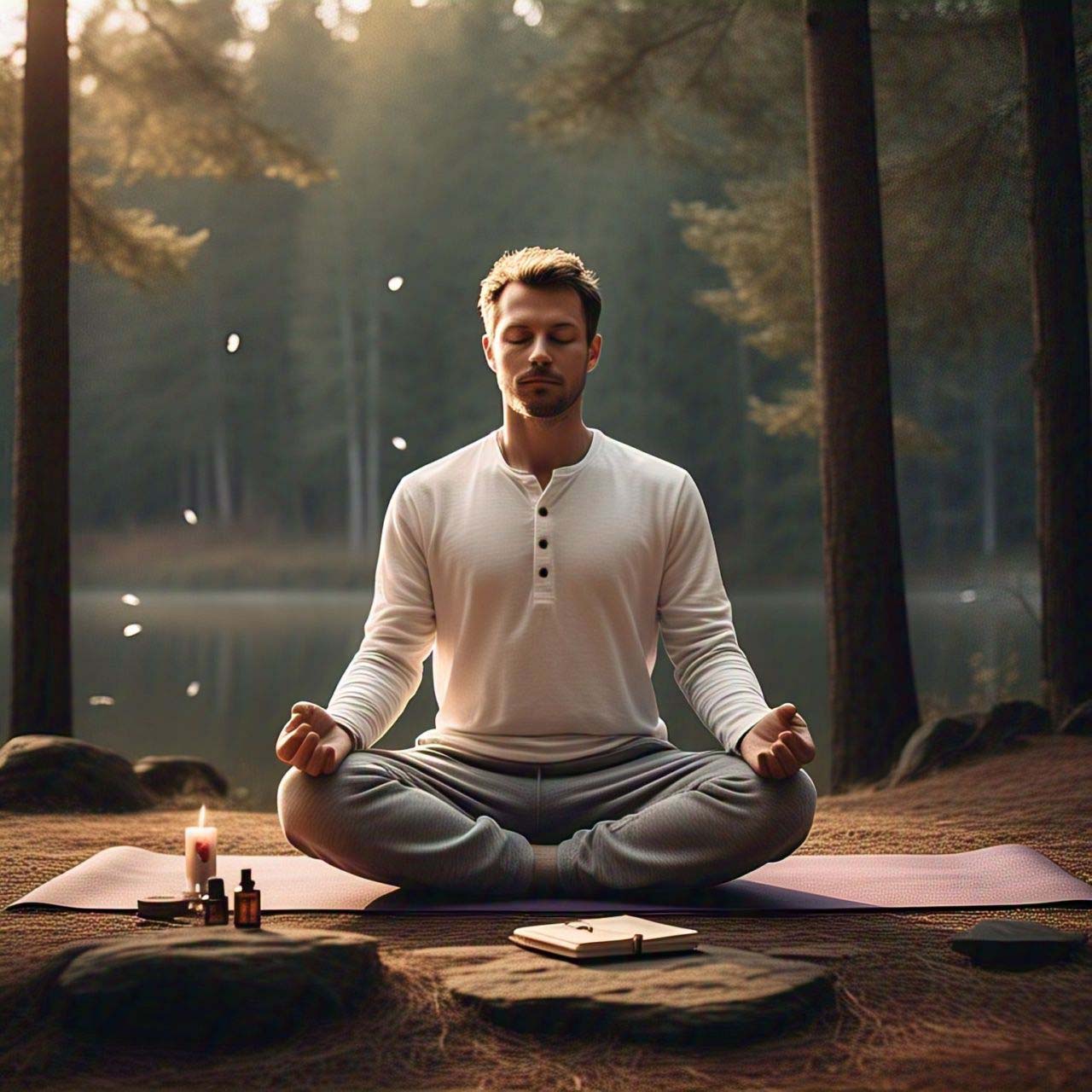Anxiety is one of the most common mental health challenges worldwide, affecting millions of people across all age groups. If you are seeking effective anxiety relief, understanding the best therapies available can make a significant difference in your mental well-being. This comprehensive guide will explore scientifically-backed therapies for anxiety, including cognitive behavioral therapy, mindfulness, medication, and lifestyle interventions. Additionally, we’ll share a relevant case study and research insights from the World Health Organization (WHO) and Harvard University.
What is Anxiety?
Anxiety is a natural response to stress characterized by feelings of fear, worry, and apprehension. It becomes a problem when it interferes with daily life and manifests as anxiety disorders, such as generalized anxiety disorder (GAD), panic disorder, social anxiety disorder, and others.
According to the WHO, anxiety disorders affect an estimated 264 million people globally, making them the most prevalent mental health disorders. Early and effective anxiety relief strategies are critical to improve quality of life.
Why Seek Anxiety Relief?
Living with untreated anxiety can lead to physical symptoms such as rapid heartbeat, digestive issues, and fatigue, as well as emotional challenges like irritability, difficulty concentrating, and social withdrawal. Prolonged anxiety increases the risk of depression and other chronic illnesses.
Seeking professional anxiety relief helps:
- Reduce symptoms and emotional distress
- Improve daily functioning and relationships
- Prevent long-term health complications
- Enhance overall well-being and resilience
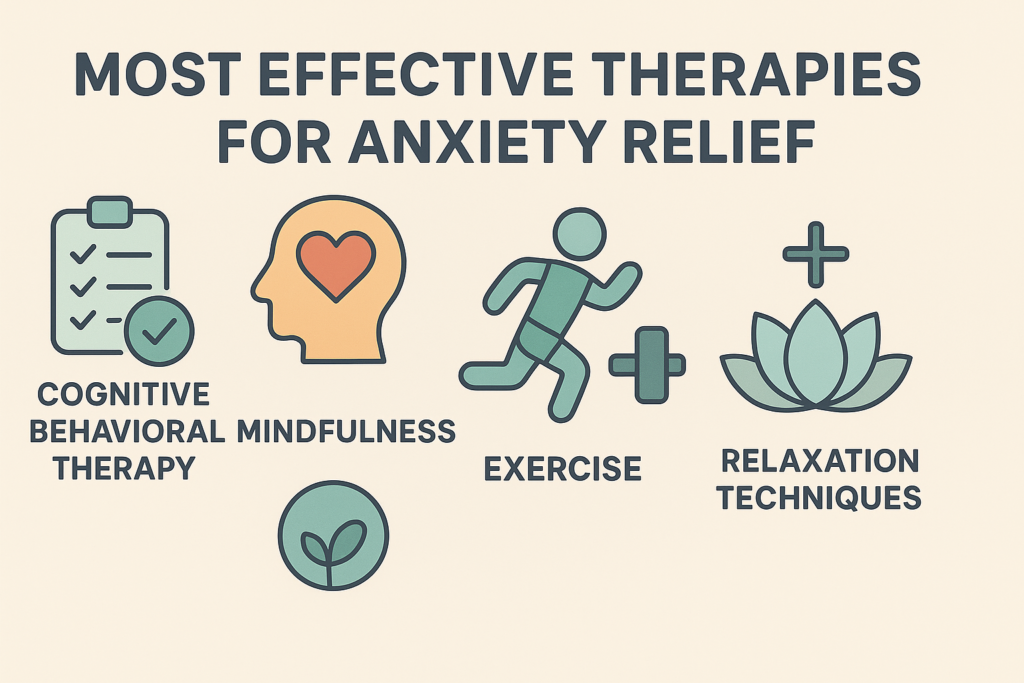
Most Effective Therapies for Anxiety Relief
Let’s explore the best scientifically supported therapies for anxiety relief:
Cognitive Behavioral Therapy (CBT)
CBT is considered the gold standard for anxiety relief. It is a structured, time-limited psychotherapy focused on identifying and challenging negative thought patterns and behaviors that fuel anxiety.
- How it works: CBT helps individuals recognize irrational fears and replace them with realistic, balanced thoughts. It also incorporates exposure therapy to gradually reduce anxiety triggers.
- Effectiveness: Studies show CBT has a success rate of 60-80% in reducing anxiety symptoms.
- Accessibility: Available through licensed therapists and increasingly via online platforms.
Mindfulness-Based Stress Reduction (MBSR)
MBSR is a therapeutic approach that uses mindfulness meditation to develop awareness and acceptance of present-moment experiences, reducing anxiety and stress.
- How it works: MBSR teaches deep breathing, meditation, and body scanning to calm the mind and reduce anxious thoughts.
- Effectiveness: Harvard research supports MBSR as effective in reducing anxiety and improving emotional regulation.
- Benefits: Non-pharmacological, easy to learn, and beneficial for long-term mental health.
Medication for Anxiety Relief
Medications are often prescribed for moderate to severe anxiety and are most effective when combined with therapy.
- Common medications: Selective serotonin reuptake inhibitors (SSRIs) like sertraline, and benzodiazepines for short-term relief.
- Considerations: Medication should be supervised by a psychiatrist due to potential side effects and dependency risks.
- Role: Helps stabilize chemical imbalances to provide symptom relief.
Exercise and Physical Activity
Regular physical activity is a powerful natural therapy for anxiety relief.
- How it works: Exercise releases endorphins, which are natural mood elevators, and reduces stress hormones like cortisol.
- Effectiveness: Studies indicate that 30 minutes of moderate exercise most days of the week significantly reduces anxiety symptoms.
- Recommendations: Activities like walking, running, yoga, and swimming are ideal.
Alternative Therapies: Yoga, Acupuncture, and More
Complementary therapies are gaining recognition for anxiety relief.
- Yoga: Combines physical postures, breathing exercises, and meditation, proven to reduce anxiety symptoms in clinical trials.
- Acupuncture: Some evidence suggests acupuncture helps balance the nervous system and reduce anxiety.
- Herbal supplements: Such as valerian root and chamomile, but should be used cautiously with professional advice.
Case Study: How Therapy Helped Sarah Overcome Anxiety
Sarah, a 32-year-old teacher, suffered from debilitating anxiety for five years. She struggled with panic attacks and social withdrawal, affecting her professional and personal life. After trying medication with limited relief, Sarah began Cognitive Behavioral Therapy combined with mindfulness training.
Within 12 weeks, Sarah reported a 70% reduction in anxiety symptoms. She regained confidence in social settings and learned coping strategies to manage future anxiety triggers. Sarah’s experience highlights the importance of personalized therapy plans and combining multiple approaches for best anxiety relief.
Research Insights from WHO and Harvard
World Health Organization (WHO)
The WHO emphasizes that anxiety disorders are treatable through a combination of psychotherapy, medication, and community support. WHO advocates for integrating mental health services into primary healthcare to increase accessibility.
A WHO report also highlights that early intervention and psychoeducation reduce the burden of anxiety disorders worldwide.
Harvard University
Harvard Medical School research underscores the effectiveness of mindfulness and CBT in anxiety relief. Their studies reveal that mindfulness practices can alter brain areas associated with emotional regulation and anxiety, such as the amygdala and prefrontal cortex.
Harvard’s experts also note that combining medication and therapy improves outcomes for patients with severe anxiety.
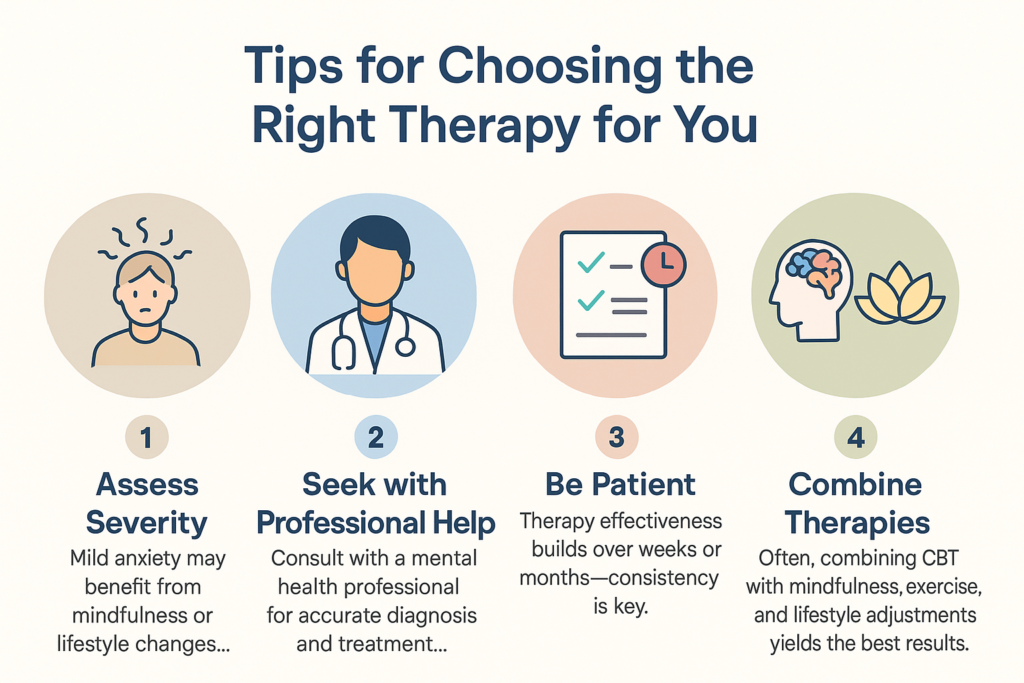
Tips for Choosing the Right Therapy for You
- Assess severity: Mild anxiety may benefit from mindfulness or lifestyle changes, while severe cases may require medication plus therapy.
- Seek professional help: Consult with a mental health professional for accurate diagnosis and treatment planning.
- Be patient: Therapy effectiveness builds over weeks or months—consistency is key.
- Combine therapies: Often, combining CBT with mindfulness, exercise, and lifestyle adjustments yields the best results.
- Use trusted resources: WHO, Harvard, and mental health organizations provide reliable information and support.
FAQs About Anxiety Relief
Q1: How long does it take for anxiety therapy to work?
A1: It varies, but most therapies show significant improvement within 8 to 12 weeks with consistent practice.
Q2: Can I manage anxiety without medication?
A2: Yes, many individuals find relief through CBT, mindfulness, exercise, and lifestyle changes, especially in mild to moderate cases.
Q3: Is anxiety relief permanent?
A3: Anxiety can be managed long-term with ongoing strategies, though some may experience flare-ups that require renewed treatment.
Q4: Are online therapies effective for anxiety?
A4: Yes, many evidence-based CBT and mindfulness programs are available online and have proven effective.
Conclusion
If you’re seeking anxiety relief, know that effective, evidence-based therapies are available that can dramatically improve your quality of life. Cognitive Behavioral Therapy, mindfulness meditation, medication, exercise, and alternative therapies all play important roles in managing anxiety. Supported by research from the WHO and Harvard, these therapies offer hope and healing to millions worldwide.
Taking the first step to seek help can be challenging, but with the right approach, anxiety can be managed successfully. Remember, recovery is a journey — stay patient, stay committed, and don’t hesitate to reach out for professional support.

